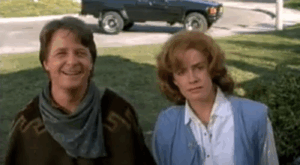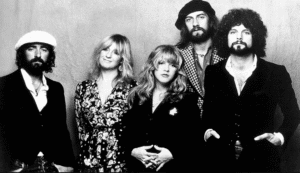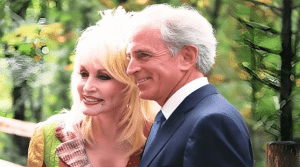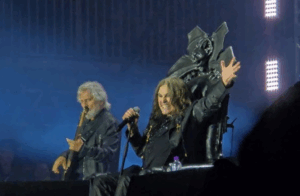5 Rock Classics That Were Banned in the 60s
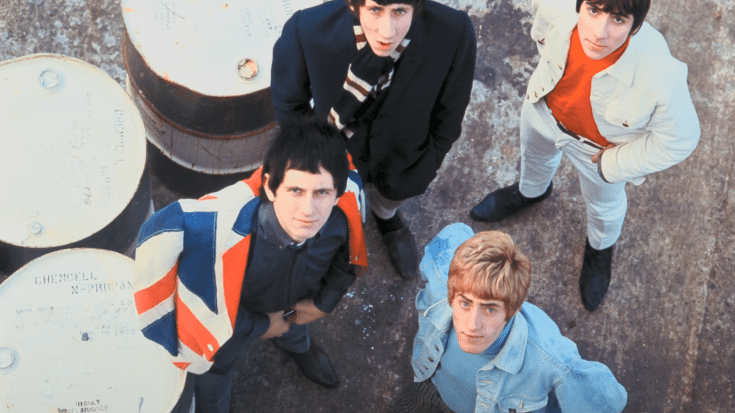
via TheWho / YouTube
Rock music in the 1960s was a powerful force for rebellion and change. Many songs from that era became anthems for social and political movements. However, there were also some classic rock songs that were banned during this time. Let’s take a look at five of these songs and the reasons behind their censorship.
These classic rock songs that were banned in the 1960s represented the rebellious spirit of the era. They pushed boundaries and challenged the establishment, but also faced censorship and scrutiny. Despite the bans, these songs remain a testament to the power of music to provoke and inspire change.
One of the banned songs from the 1960s was “Eve of Destruction” by Barry McGuire. The song criticized the Vietnam War and the state of the world at that time. It was banned on radio stations due to its controversial lyrics, such as “You’re old enough to kill but not for votin’ /You don’t believe in war, but what’s that gun you’re totin’?” Despite the ban, the song still managed to reach No. 1 on the Billboard Hot 100.
Another banned song was Peter Paul and Mary’s “Puff the Magic Dragon.” Although it was believed to have references to drug use, the song was actually about the loss of innocence and a child’s imagination. Van Morrison also faced censorship when his song “Brown-Skinned Girl” was changed to “Brown-Eyed Girl” to make it more acceptable to radio stations.
In 1967, The Doors were banned from performing on The Ed Sullivan Show after refusing to alter the lyrics of their song “Light My Fire” during a live broadcast. The line “Girl, we couldn’t get much higher” was deemed inappropriate for television at the time.
Louie Louie – The Kingsmen (1963)
The 1960s saw a shift towards more progressive and rebellious rock music, which led to closer scrutiny of lyrics and the banning of certain songs. One such example is “Louie Louie” by The Kingsmen. The song, originally written by Richard Berry, became a hit with The Kingsmen’s version. However, the band’s slurred lyrics caused controversy and led to an investigation by the FBI. Despite the rumors of explicit sexual content, the FBI’s investigation found no evidence of obscenity in the song.
My Generation – The Who (1965)
The Who’s “My Generation” also faced banning by the British Broadcasting Corporation (BBC). The song was initially banned because of singer Roger Daltrey’s stuttering in the lyrics, which some believed could offend listeners with a genuine stutter. There was also a rumor that the line “f-f-f-fade away” was interpreted as the f-word. However, the ban was eventually lifted, and the song became a hit.
Lucy in the Sky with Diamonds – The Beatles (1967)
The Beatles, one of the most influential bands of the era, also faced censorship. Their song “Lucy in the Sky with Diamonds” was speculated to have references to drugs, with the title appearing to spell out “LSD.” The BBC banned the song despite John Lennon’s insistence that it was inspired by a drawing his son had made. The Beatles’ experimentation with drugs during this period did influence some of their songs, as revealed by Paul McCartney in later interviews.
Let’s Spend the Night Together – The Rolling Stones (1967)
The Rolling Stones, known for their rebellious image, faced bans and censorship as well. While they were already banned from The Ed Sullivan Show due to their rowdy fans, their song “Let’s Spend the Night Together” caused further controversy. Although the song was not banned on the airwaves, Sullivan refused to let the band perform it on his show. Eventually, the compromise was made for the band to sing “Let’s spend some time together” instead. Mick Jagger’s eye roll during the performance further antagonized the host and resulted in an extended ban from the show.
Kick Out the Jams – MC5 (1969)
Another banned song from the 1960s was “Kick Out the Jams” by MC5. The song, known for its explosive energy, led to the band being dropped by their label due to its controversial content. Some record stores even refused to sell the band’s album, leading to a full-page ad campaign against one prominent department store.










